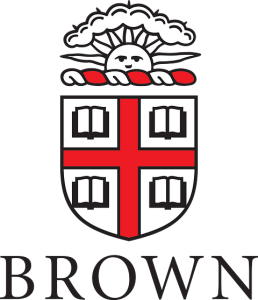MadLand – Madness in Fairy Land: (Re)Imagining Deviance in the Age of Psychiatry, 1820-1900
MadLand is an EU-funded project that investigates literature’s creative reaction to the rigid dividing lines between normativity and deviance as established by early psychiatry, then incorporated into the dominant cultural discourse, and still very much debated today. In its transatlantic and interdisciplinary exploration of 19th-century British, French, and US medicine and literature, MadLand demonstrates that in Europe and North America fairy-tale and medical discourses on deviance and abnormality similarly intersected, influencing each other and exchanging knowledge and visual representations. This project provides the first transnational investigation (1) of the ways in which 19th-century literary fairy tales reflected, incorporated, and even questioned medical interpretations of moral and psychological deviance and of abnormal behaviour, and (2) of how fairy-tale representations of monstrosity and other forms of abnormality, in turn, influenced and served as a point of reference for the construction and codification of insanity by psychiatry in its formative period, 1820-1900.
Research Objectives
– Overall goal of the project: investigate the evolution of madness in 19th-century medical literature and its creative representation in fairy-tale narratives, demonstrating the mutual knowledge-exchange between psychiatry and literature in interpreting, understanding, and (re)imagining deviance.
– First Specific Objective: provide the first analysis of the crucial role of early psychiatry in shaping 19th-century literary fairy tales, exploring the themes, imagery, and forms of madness and deviance.
– Second Specific Objective: determine to what extent the conception of medical deviance has been interpreted, adapted, represented, and ultimately subverted in 19th-century fairy tales, outlining the ways in which the technical-medical debate about abnormality influenced, but was also questioned in, literary discourse, and how madness and its related abnormalities transcend their medical meaning in fairy tales to produce novel aesthetic, educational, socio-cultural or metaphysical significations.
– Third Specific Objective: examine the ways in which the normative notions of sexuality and gender, as well as of masculinity and femininity, are challenged in fairy-tale stories and substituted by alternative, nonconforming, and more fluid interpretations of gender identity and sexual orientation.
– Fourth Specific Objective: analyse the impact of the fairy-tale representation of monstrosity on 19th-century psychology, studying how various forms of abnormality throughout the fairy-tale tradition served as reference for the interpretation and subsequent classification of mental disorders.
People
Alessandro Cabiati is a Marie Sklodowska-Curie Global Fellow at Ca’ Foscari University of Venice, Italy, and a Visiting Scholar at Brown University, USA (2022-2023). He has been a Postdoctoral Research Fellow in Comparative Literature at King’s College London and a Tutor in Comparative Literature at The University of Edinburgh. He has published a book, an edited collection, and several essays in the area of nineteenth-century English, Anglo-American, French, and Italian literature, investigating in particular the themes of psychological deviance, decadence, and modernity in the context of fairy tales and fantastic literature.
The supervisors of MadLand are Professors Laura Tosi (Ca’ Foscari University of Venice) and Lewis Seifert (Brown University). Laura Tosi is Full Professor of English Literature in the Department of Linguistics and Comparative Cultural Studies at Ca’ Foscari. She is an award-winning scholar who has published extensively on 19th-century English fairy tales and the history of the literary fairy tale, examining in particular the social values and gender roles in canonised fairy tales from the point of view of feminist criticism. Lewis Seifert is Professor of French and Francophone Studies at Brown University. His research focuses in particular on questions of gender and sexuality, both theoretically and historically, in fairy-tale narratives from across the Francophone world. He has authored numerous influential publications in which he explores ambivalent representations of femininity, masculinity, and (hetero)sexuality.
Dissemination of Research Results
Publications
Alessandro Cabiati and Lewis Seifert (Eds), Norm and Transgression in the Fairy-Tale Tradition (provisional title), a Special Issue of MARVELS & TALES, 39.1 (forthcoming 2025)
Alessandro Cabiati and Lewis Seifert, ‘Introduction to the Special Issue: (Non)Normative Identities, Forms, and Writings’, in Norm and Transgression in the Fairy-Tale Tradition (provisional title), a Special Issue of MARVELS & TALES, 39.1 (forthcoming 2025)
Laura Tosi and Alessandro Cabiati, ‘Introduction: Fairy Tales and Other Horrors’, in LITERATURE, 2024, vol. 4, pp. 22-30 (ISSN 2410-9789), https://doi.org/10.3390/literature4010002
Alessandro Cabiati, ‘Blue Chambers, Bluebooks, and Contes Bleus: Gothic Terror and Female Deviance in Nineteenth-Century Adaptations of “Bluebeard”‘, in HUMANITIES, 2023, vol. 12, pp. 1-14 (ISSN 2076-0787), https://dx.doi.org/10.3390/h12040060
Laura Tosi and Alessandro Cabiati (Eds), Severed Limbs and Monstrous Appetites: (Re)Defining Fairy-Tale Horror from the Seventeenth Century to the Present, a Special Issue of LITERATURE, 2023-2024, vols. 3-4 (ISSN 2410-9789)
Conference Organized
Alessandro Cabiati and Laura Tosi, Adaptation and the Fairy Tale: Alice Before and After, 10 November 2023, Ca’ Foscari University of Venice. Speakers: Peter Hunt, Zoe Jaques, Alessandro Cabiati, Pompeo Vagliani, Stefania Tondo, Marnie Campagnaro, Massimo Stella
Alessandro Cabiati and Lewis Seifert, Norm and Transgression in the Fairy-Tale Tradition: (Non)Normative Identities, Forms, and Writings, 7-9 June 2023, Brown University. Keynote Speakers: Maria Tatar, Cristina Bacchilega, Anne E. Duggan, Laura Tosi. Conference reviewed here by the Carterhaugh School of Folklore and the Fantastic
Conference Keynote Address
Alessandro Cabiati, ‘Marvellous Abnormalities: Fairy Tales, Decadence, and Deviance in the Late Nineteenth Century’, Decadence and the Fairy Tale, 24 March 2023, Goldsmiths, University of London, UK. (Recording of keynote talk available on the conference website)
Conference Papers
Alessandro Cabiati, ‘Alice and the Rise of Psychiatry, Before and After’, Adaptation and the Fairy Tale: Alice Before and After, 10 November 2023, Ca’ Foscari University of Venice
Alessandro Cabiati, ‘La fiaba al tempo della psichiatria: Approcci metodologici per due discipline (apparentemente) inconciliabili’, Érase una vez… / …E vissero per sempre, 20 October 2023, Ca’ Foscari University of Venice
Alessandro Cabiati, ‘Magical Maladies: (Dis)Enchanting Mental Illness in Nineteenth-Century Fairy Tales’, Magic: Enchantment and Disenchantment, 27-29 March 2023, Christ Church, University of Oxford, UK
Alessandro Cabiati, ‘Gothic Terror and Female Deviance in Nineteenth-Century Adaptations of “Bluebeard”‘, Gothic Networks: Webs, Traps, and Global Trends, 24-25 January 2023, Gothic Association of New Zealand and Australia
Alessandro Cabiati, ‘”We’re all mad here”: l’adattamento di Alice nell’ambito medico-psichiatrico a cavallo tra due secoli (1865-1940)’, Nello specchio di Alice: il sé e l’altro, 2 December 2022, Suor Orsola Benincasa, Italy
Alessandro Cabiati, ‘Decadent Fairy Tales and Abnormal Consumptions: A Comparative Investigation of Excessive Eating/Drinking in Boito’s Re Orso and Anorexia Nervosa in Mendès’s “Le Mauvais convive”‘, Food and/in Children’s Culture: National, International and Transnational Perspective, 6-9 April 2021, Ca’ Foscari University of Venice
Seminars
Alessandro Cabiati, ‘When Monsters Become Real: The Fairy-Tale Language of Psychological Deviance’, Fairy Tales and Culture, 4 October 2023, Brown University
Alessandro Cabiati, ‘Edgar Allan Poe and Psychological Monstrosity’, “Hideous Monster(s) of the Mind”: Monster Literature, Monster Theory, and American Identities, 26 October 2022, Brown University
Alessandro Cabiati, ‘Gender Subversions and the Metamorphosis of Nonconforming Desires: A Comparative Analysis of “Le Mouton” (1697) and “Jouvencelle-Jouvenceau” (1894)’, Thinking and Writing the Non-Human in the 17th Century, 19 October 2022, Brown University
Alessandro Cabiati, ‘La bellezza macabra del mostro: l’ossessione dei corpi cadaverici e dannati nell’Ottocento’, Perfetta bellezza: l’ossessione del corpo amoroso, 17 November 2021, Ca’ Foscari University of Venice
Alessandro Cabiati, ‘(a)normalità del corpo / (a)normalità della mente’, Ease and Disease of the Body: Language Emotions and the Theatre, 15 April 2021, Ca’ Foscari University of Venice
An Interview about MadLand
Alessandro Cabiati, cafoscariNEWS, 14 May 2021, https://www.unive.it/pag/16584/?tx_news_pi1%5Bnews%5D=10527&cHash=7b0de148cbfae2084ffcd42388cb79b0

This project has received funding from the European Union’s Horizon 2020 research and innovation programme under the Marie Skłodowska-Curie grant agreement No 101025123.
Start date: 15 October 2021
End date: 14 October 2024

 Project coordinated by the Department of Linguistics and Comparative Cultural Studies of Ca’ Foscari University of Venice and the Department of French and Francophone Studies at Brown University
Project coordinated by the Department of Linguistics and Comparative Cultural Studies of Ca’ Foscari University of Venice and the Department of French and Francophone Studies at Brown University